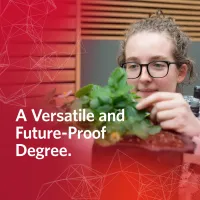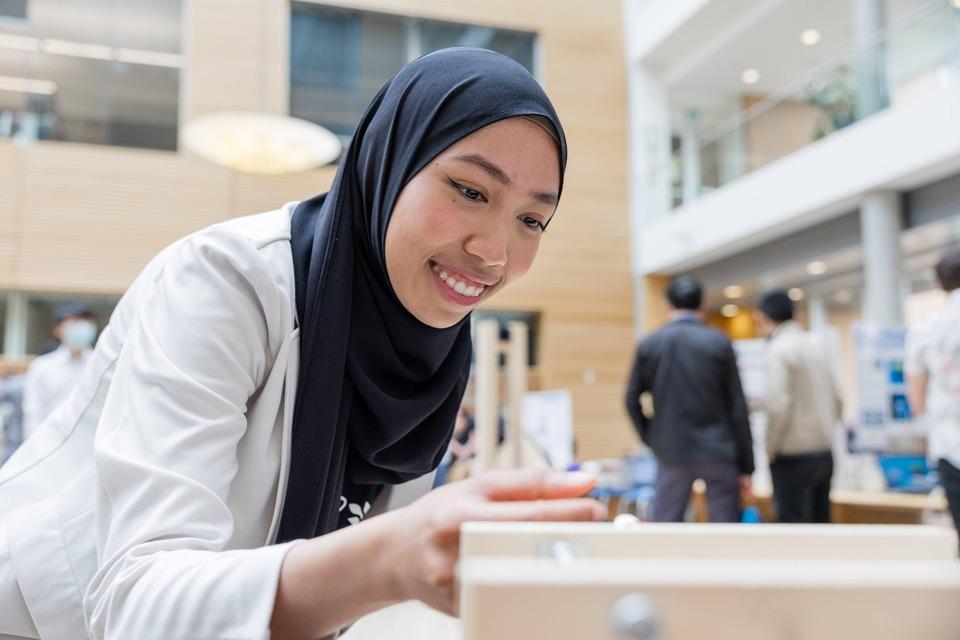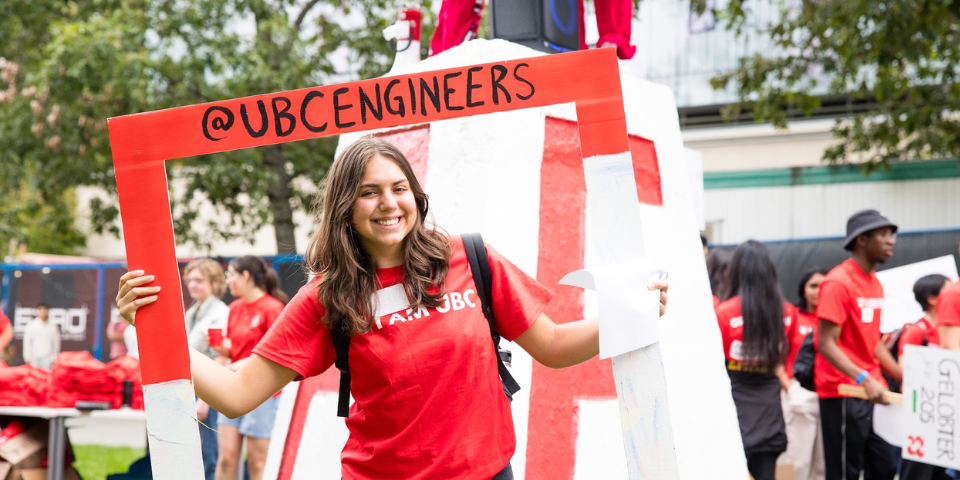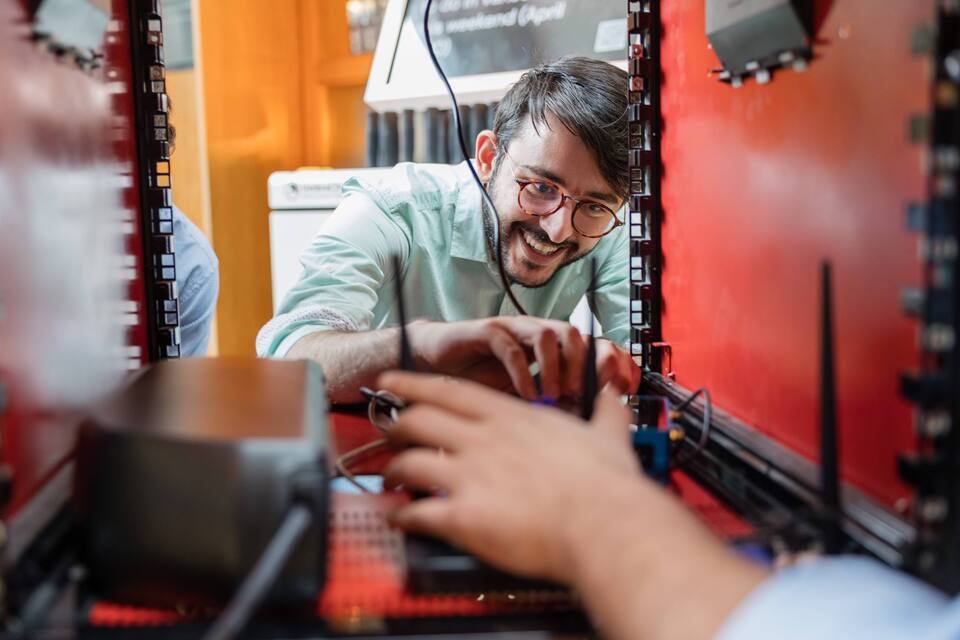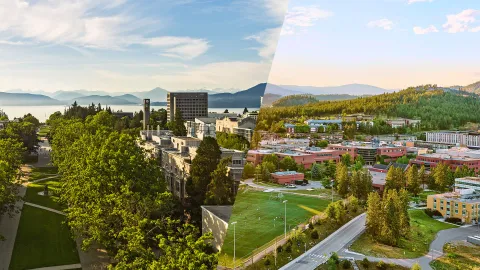
A degree from UBC is recognized around the world. As one of the world’s top universities offering one of Canada’s best engineering programs, students who graduate from UBC are highly respected and sought after by employers.
One of UBC’s strengths that sets us apart from other universities is that we have two campuses: UBC Vancouver, located on the province’s west coast, and UBC Okanagan, located in Kelowna, a fast-growing city of around 225,000 about a five-hour drive from Vancouver.
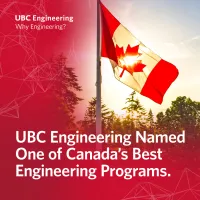
Having two campus gives UBC – and our students – unprecedented ability to make a positive impact in our surrounding communities and the province, country and world beyond.
We’re more than the sum of our parts: The two campuses have a unique synergy and multiple points of connection with community members, industry, government, non-profit organizations and others. All this enables us to amplify our impact as we innovate and solve important problems to make our world better.
A unified approach to engineering education
Both UBC campuses offer the same innovative, project-based engineering education that enables UBC Engineering grads to stand out.
UBC Engineering students take a foundational first year curriculum to build their knowledge of fundamental concepts (think courses on physics, math, chemistry and coding) while also completing engineering-focused design courses to learn how to think like an engineer while working on real-world problems.
The first-year engineering design courses aren’t identical on the two campuses. So if you are in Vancouver and chatting with a friend in Kelowna, you’ll discover that you are working on different kinds of projects. But the end result is the same: you will finish first year with hands-on experience of working on open-ended challenges to come up with innovative solutions.
Read how students at UBC Okanagan have developed award-winning solutions for challenges from the lack of clean water to the need for lighter equipment for firefighters.
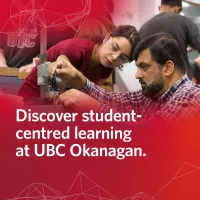
No matter which campus you choose, the foundational first year provides an opportunity for you to explore your engineering program options and discover which program is right for you.
Foundation Year Curriculum First Year Advantage at UBC
The same opportunities to connect with employers through co-op
Co-op is an incredible way to gain well-paid work experience that can help you build connections, test out different career paths, explore different engineering disciplines in your degree.
At both Kelowna and Vancouver, we have strong connections with local employers who are always keen to hire our students.
And given UBC’s reputation as having one of the country’s best engineering programs, employers are very interested in hiring our students for co-op jobs, no matter which campus they are studying at.
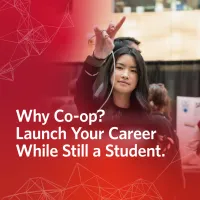
Customize your degree
At both campuses, you have the same types of opportunities to make your degree experience uniquely your own. You can do a minor, get involved in research opportunities, go on an international exchange or be part of an engineering design team.
Different cities, different climate
Our article UBC Vancouver and UBC Okanagan both offer an outstanding education in engineering gets into some of the differences between the two campuses and cities. Which you prefer is entirely a matter of personal preference and the type of undergraduate student experience that appeals to you.
Are you more of a big city person or do you prefer a smaller urban centre? How do you feel about a more temperate (and rainy) climate compared to a climate of four distinct seasons? Would you rather be on a larger campus with more students or a smaller campus with fewer students?
Your answers to these questions might sway you in the direction of UBC Vancouver or UBC Okanagan.
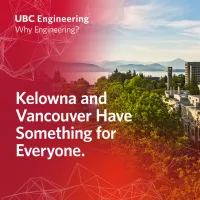
When you apply to UBC, you will be asked to list your preferred choice for which campus you want to attend and what program you want to study. Read more about the admissions process.
Visit us if you can!
Nothing beats an in-person visit to get a sense of what it would be like to live and study in a particular location. While both UBC Vancouver and UBC Okanagan offer visits throughout the year, save some dates in the fall if you want to attend one of the engineering open houses.
These are incredible opportunities to tour our facilities, meet profs and current students, learn about your program options and begin to start imagining yourself as part of our incredible community.
Can’t visit in person?
No problem. You can do a virtual tour of UBC Okanagan and UBC Vancouver, sign up for a campus tour or event, and chat with current students from both campuses about what it’s like
Engineering Open House UBC Okanagan Virtual Tour
UBC Vancouver Virtual Tour Campus Tour Sign-up
A degree to launch your future
No matter which campus you choose for your engineering education, you will graduate with a globally recognized degree from UBC that sets you up to succeed in engineering, no matter where in the province, country or world you end up practicing.
